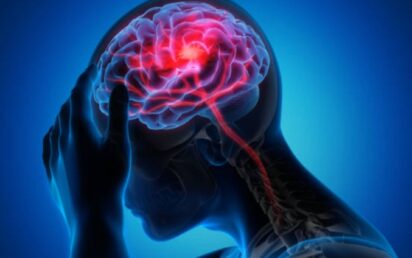A £21 million fund aims to give NHS staff access to artificial intelligence technology to diagnose and treat patients more quickly.
NHS Trusts will be able to apply to the AI Diagnostic Fund to accelerate the deployment of the most promising AI imaging and decision support tools to help diagnose patients more quickly for conditions such as cancers, strokes and heart conditions.
Health and Social Care Secretary Steve Barclay has also committed to rolling out AI stroke-diagnosis technology to 100% of stroke networks by the end of 2023 – up from 86% today – helping thousands of patients suffering from a stroke get treated faster.
The ring-fenced funding was announced ahead of the NHS’s 75th birthday.
“Artificial intelligence is already transforming the way we deliver healthcare and AI tools are already making a significant impact across the NHS in diagnosing conditions earlier, meaning people can be treated more quickly,” said Barclay.
“As we celebrate the NHS’s 75th birthday and look ahead to the future, I’m focused on adopting the latest cutting-edge technology across our health and care system to ensure we can continue to deliver the best care for our patients and cut waiting times, which is one of the government’s five priorities.”
This AI Diagnostic Fund will include the use of AI tools to analyse chest X-Rays – the most common tool used to diagnose lung cancer – which is the leading cause of cancer death in the UK. With over 600,000 chest X-rays performed each month in England, the deployment of diagnostic AI tools to more NHS Trusts will support clinicians to diagnose cancer patients earlier, improving patient outcomes.
The use of AI in the NHS is already having a positive impact on outcomes for patients, with AI in some cases halving the time for stroke victims to get the treatment they need by helping doctors diagnose stroke faster, which has been shown to triple the chance of patients living independently after a stroke.
Professor Stephen Powis, NHS national medical director, said: “The NHS is already harnessing the benefits of AI across the country in helping to catch and treat major diseases earlier, as well as better managing waiting lists so patients can be seen quicker.
“As we approach our milestone 75th birthday, this is another example of how the NHS is continuing its proud history of adopting the latest proven technology to deliver better care for patients, and better value for taxpayers.”
The £21m funding will be open for bids for any AI diagnostic tool that trusts want to deploy, but will have to represent value for money for the funding to be approved, says the government.
Dr Deb Lowe, national clinical director for stroke medicine, NHS England, said: “The use of AI decision support software in the initial stages of stroke care means patients get interventions quicker, reducing the likelihood of disability and saving the brains.
“We are already seeing the positive impact of AI decision support software on stroke care, where rapid assessment and treatment are of the essence, and we now have real world evidence of the benefit for NHS patients – as we approach the NHS’s 75th birthday and look ahead to the future, funding this technology will be key to reducing disability and saving brains.”


